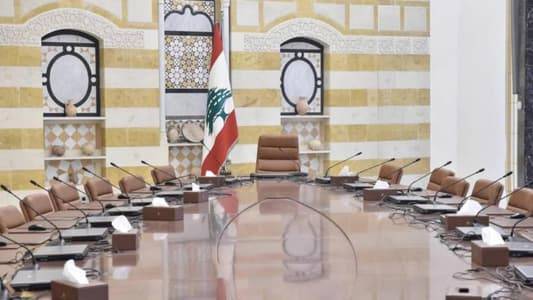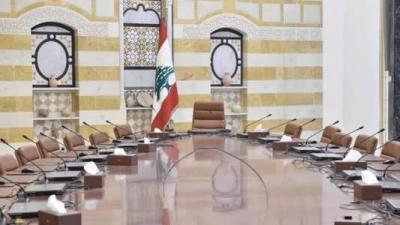The lawmakers in Lebanon have not found the exceptional circumstances they are experiencing to prompt them to expedite the election of a president during the eighth presidential round, especially as the challenges grow that compel the caretaker Prime Minister Najib Mikati to call for a Cabinet session, alongside Speaker of the House Nabih Berri's call for a general session on the seventh of this month.
Amid the government palace's focus on preparing health, medical, and service agenda items before inviting ministers to "rehabilitate" their resigned council, holding accountable those absent among them in front of public opinion, Speaker Berri has seen in pursuing corruption files and calling the general assembly to address the accusation petition and follow up on the “corrupt” an entry point to resume council sessions, amid a vacancy in the first presidential seat, which is entrusted with ensuring the regular operation of institutions and respecting the constitution.
This situation has raised questions about the impact of the absence of the foremost Christian site and its role in the covenant and authority primarily, and the legitimacy of a resigned government with restricted powers convening, and the parliament legislating in the absence of a president?!
While the "strong republic" bloc affirms the necessity of electing a president before the parliamentary council resumes its legislative sessions, aligning with the positions of other Christian blocs, attention turns to ministers affiliated with former President Michel Aoun and close to the "Free Patriotic Movement" to gauge their stance on the Cabinet resuming its sessions, following the stance of the "Strong Lebanon" bloc headed by Gibran Bassil asserting that "the priority is to elect a president, away from attempts to subject the 'movement' to extortion, and putting ministers in confrontation with the public in case they adhere to the constitution, under the pretext of securing funds for basic needs."
With the "Free Patriotic Movement" emphasizing its refusal to yield to extortion and affirming its stance against the government convening and legislating amid the presidential vacancy, circles close to it have viewed these stances as reflecting the movement's principled and clear choices related to the unconstitutionality of solutions that place the caretaker Prime Minister in place of the president and the powers granted to him to singularly call for a Cabinet meeting.
This comes as the assignment of President Najib Mikati to form a government has effectively lapsed with the end of President Aoun's term, and his government has continued in caretaker mode since the parliamentary elections. Before President Aoun’s term ended, Mikati found nothing to prompt him to coordinate with him for a Cabinet session, and he has now turned against the constitution, trying to seize presidential powers.
This could pave the way for an easier acceptance of the presidential vacancy and the call for a Cabinet session, as these circles see it, resuming the parliament's legislative sessions, and establishing new norms that allow for dispensation with the president and his fortified position in the constitution while enabling institutions to continue their usual work, which represents a significant scandal by all measures, raising numerous questions about the future of the "Taif" agreement, the presidential role, and the continuity of work under this constitution, leading to a discussion about the position of Christian partnership in power, distancing from the stance of the "Free Patriotic Movement" or any of the other Christian forces and parties.
In the meantime, there are questions about the possibility of the parliament convening under the presidency of the deputy president in case of a vacancy in the second presidential seat due to resignation, death, or any other reason. Furthermore, questions arise regarding the role of the deputy prime minister and their ability to call for a Cabinet meeting in case of their chief's death, resignation, or any other reason.
With no precedents allowing this, observers have questioned the motives that prevent the violation of the presidency in contrast to the second and third presidencies and seek to undermine the Christians' position in the covenantal partnership in power, apart from the positions of Christian parties and their participation in the expected legislative or ministerial sessions, insisting in conclusion that "the emergency circumstances" that require the Cabinet to convene (due to some aggression) impose themselves on everyone with very limited powers, while avoiding paving the way to seize the powers of the president, which will not be accepted by anyone!




